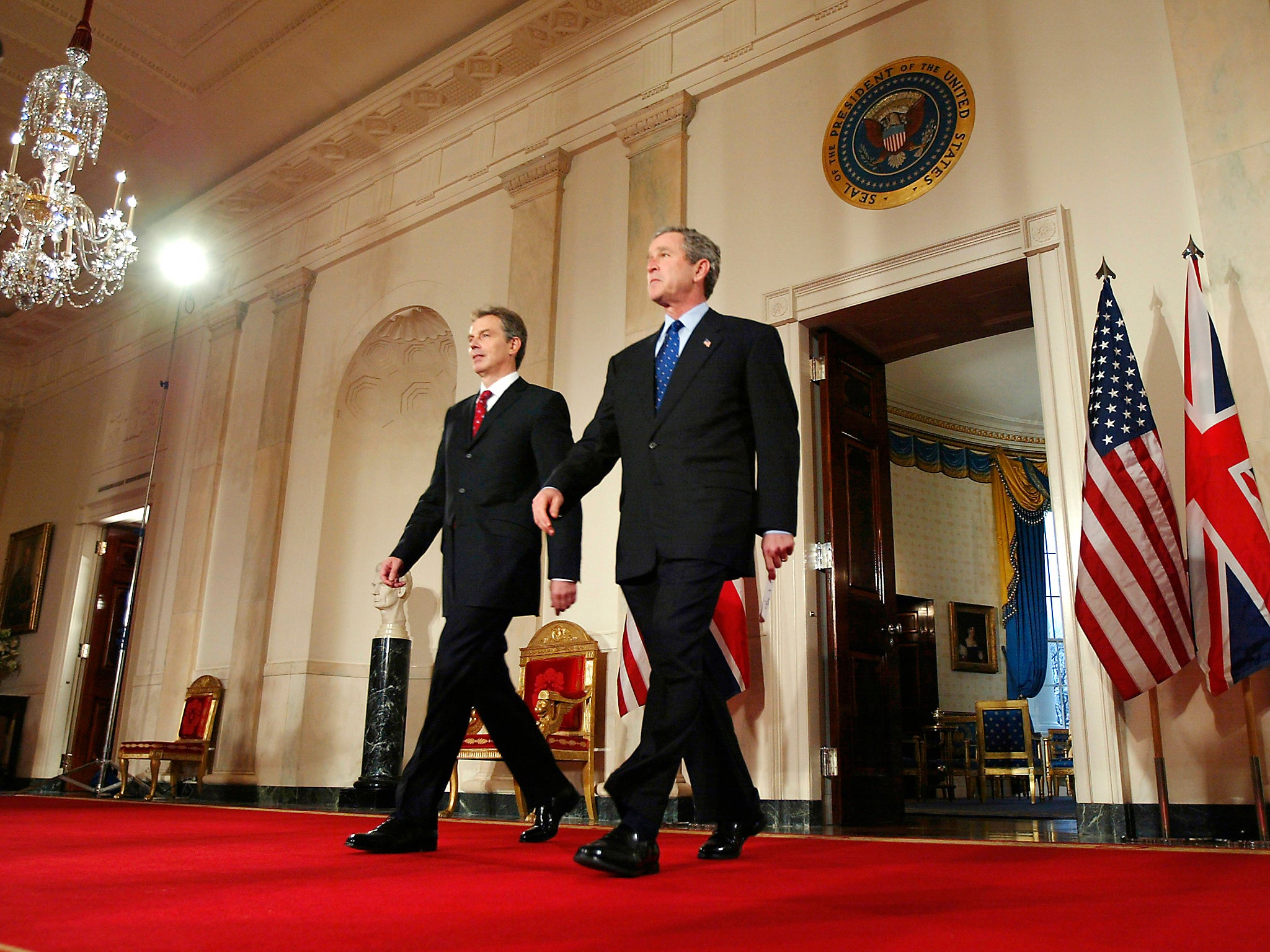Tony Blair's rush to war could be repeated due to lack of checks, MPs warn
‘There is simply nothing even a cabinet secretary can do to stop a prime minister from doing this again at some time in the future, short of resignation’

Your support helps us to tell the story
From reproductive rights to climate change to Big Tech, The Independent is on the ground when the story is developing. Whether it's investigating the financials of Elon Musk's pro-Trump PAC or producing our latest documentary, 'The A Word', which shines a light on the American women fighting for reproductive rights, we know how important it is to parse out the facts from the messaging.
At such a critical moment in US history, we need reporters on the ground. Your donation allows us to keep sending journalists to speak to both sides of the story.
The Independent is trusted by Americans across the entire political spectrum. And unlike many other quality news outlets, we choose not to lock Americans out of our reporting and analysis with paywalls. We believe quality journalism should be available to everyone, paid for by those who can afford it.
Your support makes all the difference.No checks have been put in place to prevent a prime minister repeating Tony Blair’s disastrous rush to war in Iraq, MPs have warned.
It remains “too easy for a prime minister to disregard cabinet procedures” such as ensuring ministers are shown evidence and given proper advice, a Commons committee has concluded – despite promises of change.
MPs pointed out how Mr Blair “bypassed” his cabinet, particularly when he defied officials by writing his notorious “We will be with you, whatever” note to George W Bush.
Last year’s Chilcot report also highlighted how the cabinet approved the 2003 invasion without being allowed to question the attorney general about his change of mind in declaring it legal.
Crucially, the Public Administration and Constitutional Affairs Select Committee dismissed the current Government’s claim to have made changes to address “weaknesses in decision-making, planning and implementation”.
Instead, Bernard Jenkin, its Conservative chair, warned: “At present, there is simply nothing even a cabinet secretary can do to stop a prime minister from doing this again at some time in the future, short of resignation.
“There was a lack of collective cabinet decision-making, at a time when clear thinking and a culture of challenge was most needed.
“The failure to engage cabinet on such decisions cannot be allowed to happen again, but there is no mechanism to ensure that.”
The report called for the cabinet secretary and senior officials to be able to require a formal “letter of direction”, as an essential check to prevent a repeat of the Iraq debacle.
This would be required when they are “being instructed to disregard the normal procedures set out in the Cabinet Manual” – to safeguard officials’ independence and clarify their responsibility.
The MPs welcomed that the Government now “recognises that a culture and spirit of challenge is essential for good decision-making in government”.
But, the report added: “However, this means not only having the right meetings and the right people in the meetings, but making sure that meetings are effective.”
Evidence to the Chilcot inquiry revealed that both Mr Blair’s foreign policy adviser and chief of staff begged him not to send the note to President Bush, eight months before the invasion.
The report also found that the former Prime Minister and three senior cabinet members knew – 10 days before an emergency meeting – that the attorney general had serious doubts about the legal status of the war.
Yet none asked Lord Goldsmith why he had changed his previous view that it would be safer to obtain a second United Nations resolution because of the risk of a legal challenge.
Today’s report noted that “for many, the Chilcot inquiry fails to provide closure on the Iraq issue”, which “left an indelible scar on British politics”.
The report concluded: “We, as parliamentarians, must also reflect upon how Parliament could have been more critical and challenging of the government at the time.”
The committee also noted the “seriousness” of the case made by Dr Glen Rangwala, a Cambridge University politics lecturer, that Mr Blair “deliberately misled” the Commons.
It said Sir John Chilcot, who led the Iraq enquiry, “believes that there was no personal and demonstrable decision by the then prime minister to deceive Parliament or the public”.
However, it concluded: “Should further evidence, beyond the Chilcot report, come to light that supports Dr Rangwala’s arguments, the House may wish to refer this matter to the Privileges Committee to take further.”
Join our commenting forum
Join thought-provoking conversations, follow other Independent readers and see their replies
Comments